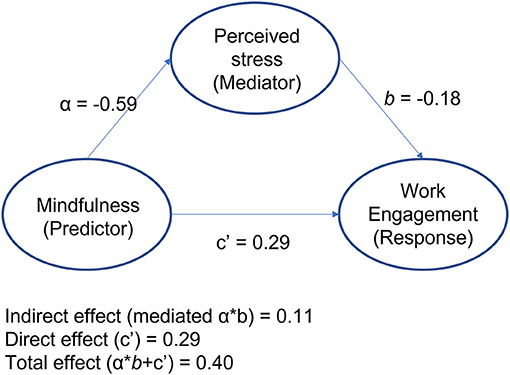
Meditation is one of many treatments for headaches. Researchers have found that the practice of meditation reduces tension in the body, which leads to a general feeling of relaxation. It can also be beneficial to people suffering from migraines or frequent headaches because it isolates the pain points. This meditation practice can reduce migraine severity and the frequency of headaches.
Research has shown that meditation can help relieve the pain associated with a headache. Meditation has been shown to reduce headache pain by clearing negative thoughts from the mind and increasing focus. Research has shown that meditation may reduce migraine-related disability and pain intensity. Mindfulness and Kundalini are the two main types of meditation. Both allow people to be more present and free from their thoughts.

Even though meditation can help with headache pain, it can also be difficult for someone who has never tried it. Meditation requires that the practitioner sit still for long periods of uninterrupted time and is able to focus on the present moment. This can be intimidating for people who have not tried meditation, but there are many different techniques available to combat the pain and suffering of migraines. Once you know what you're doing, you can start practicing.
Studies have shown that meditation can help reduce migraine intensity and duration. The Wake Forest Baptist Medical Center, North Carolina, assigned 19 migraineurs to a stress reduction program that included mindfulness meditation, yoga and yoga. Participants were required to meditate for 30 minutes each day. Although statistically not significant, participants experienced fewer headaches. This is a great idea for anyone with chronic headaches.
Meditation can reduce headache pain and offer many other benefits. Meditation helps to relax the body and reduce stress. It can reduce migraine severity and frequency. It also increases pain tolerance. In one study, 92 patients were assigned to a mindfulness-based meditation program. Participants in the study were instructed to meditate every day for at least half an hour. These results were observed in only four weeks. Participants in the control group had no benefit.

Meditation for migraines may be able to reduce the severity and frequency of migraine attacks, according to another study. Meditation can increase heart rate variability, which helps improve cardiovascular health, sleep quality and psychological resilience to stress. To reduce migraines, people suffering from chronic headaches may want to meditate. It will help them lead a more stress-free existence. It will also improve their mood. Meditation not only reduces the severity of their migraine attacks but also helps improve their overall health.
FAQ
What are the five ways to improve wellbeing in your life?
The state of being well is defined as the "state of physical, mental and spiritual well-being." Our well-being is affected by many factors, including family, work and health. The first step to improving your well-being is identifying what aspects of your life need improvement. Then, try to change these things for the better.
Here are five ways to improve your well-being:
-
Exercise - Physical activity boosts endorphins which make us happier.
-
Sleep – Sleeping longer than 6 hours each night will reduce anxiety and stress.
-
Nutrition - Eat healthy foods, such as fruits and veggies, to boost your mood.
-
Meditation - Regular meditation helps to reduce stress and anxiety.
-
Socialization – It's important to spend time with loved ones and make friends.
Is mental health as important as work?
Everybody needs to be healthy, especially when they are working. Try to find a way to unwind after work if you feel stressed.
If you find that you cannot relax, you should talk to your boss or supervisor. They may be able offer suggestions to ease your stress.
It is also important to take care of your health. It's important to eat right, exercise regularly, take enough rest, and get plenty of sleep.
What do psychologists think about mental health and well-being?
Psychologists believe that mental wellbeing is essential for human development. Psychologists also believe that mental wellness is not just about having mental illness free of all causes, but about being mentally healthy.
Mental health is a topic that psychologists have differing opinions on. Some psychologists argue that mental well-being is not important, as there are many people without mental illnesses. Others feel that mental well-being is vital because it allows us to function properly.
How does one know if he/she has a mental illness?
An individual may be diagnosed if they experience symptoms that disrupt their daily activities. There are many symptoms of mental illness. The most common symptoms are: sadness, anxiety, guilt, hopelessness, loneliness, depressed and confused, worthless or guilty, suicidal thoughts, and feeling sad.
A person could also be diagnosed with mental disorders if they meet the following criteria:
-
Disturbed thoughts or feelings
-
Disturbed behavior
-
Disturbance of functioning
-
A decrease in ability to relate with others
What should I do if I am experiencing mental health issues?
It is vital to seek support if you are experiencing any mental health problems. It is possible that you have been subject to abuse or trauma in the past. It is possible that you have had to deal with trauma in your past.
Another type of mental illness you might be experiencing is an addiction or eating disorder. These disorders can have a devastating effect on your life.
You should not attempt to resolve them by yourself. You should speak to someone who understands what you're going through. A professional therapist can provide the support you need to overcome these challenges.
Statistics
- In any given year, an estimated 18.1% (43.6 million) of U.S. adults ages 18 years or older suffered from any mental illness, and 4.2% (9.8 million) (healthypeople.gov)
- It means no drinking any alcoholic beverages and no taking any drugs that aren't 100% natural.
- Neuropsychiatric diseases are the leading cause of death and disability in the U.S., accounting for 18.7 percent of all years of potential lifespan loss and premature mortality.
- More than 40 million adults in the United States have an anxiety disorder, but less than 37% of people seek mental health treatment for their symptoms. (talkspace.com)
- According to the National Alliance of Mental Illness (NAMI), one in five Americans experiences mental health issues which translates to more than 40 million adults a year. (doctorondemand.com)
External Links
How To
How to Manage Stress
Stress is normal. We need to learn how to relieve stress. Stress can impact every area of your daily life. Stress can cause problems like neck pain, back pains, headaches, stomach aches and constipation. You may even develop ulcers if you're under chronic stress.
There are many things you can do to reduce stress. Exercise increases endorphin release, which can make you happy and relaxed. Meditation reduces stress levels by slowing down to take deep, calm breaths. Yoga is another great way of reducing stress and improving overall health.
Learning how to manage stress and eliminating it completely is the best way to manage it. Ask someone who does.